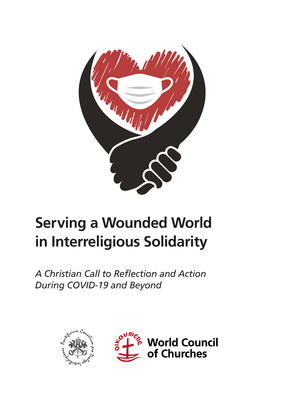Displaying 1 - 8 of 8
24 June 2023
Zur Verwandlung aufgerufen Ökumenische Diakonie
15 February 2023
Redes de la sociedad civil en VIH y SIDA y actores religiosos
Lecciones aprendidas del involucramiento estratégico en la India, República Dominicana, Indonesia y Jamaica
07 February 2023
Kirchen und moralisch-ethische Urteilsbildung Band 3
Band 3: Dialog fördern, um Koinonia zu stärken
05 November 2021
Al servicio de un mundo herido en solidaridad interreligiosa
Un llamado cristiano a la reflexión y a la acción durante la covid-19 y más allá
15 December 2020
Interreligiöse Solidarität Im Dienst Einer Verwundeten Welt
Ein christlicher Aufruf zum Nachdenken und Handeln während der Corona-Krise und darüber hinaus
15 December 2020
Current dialogue
05 August 2020
Current dialogue
05 August 2020



